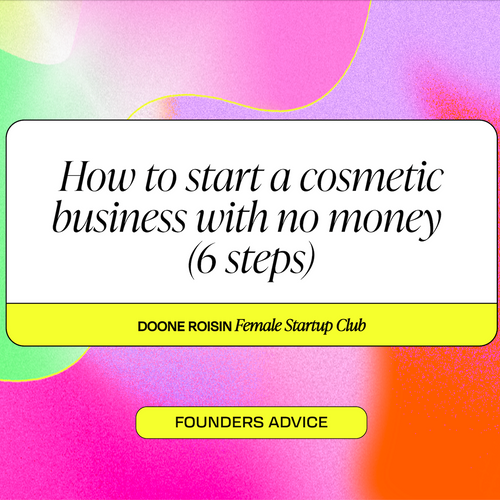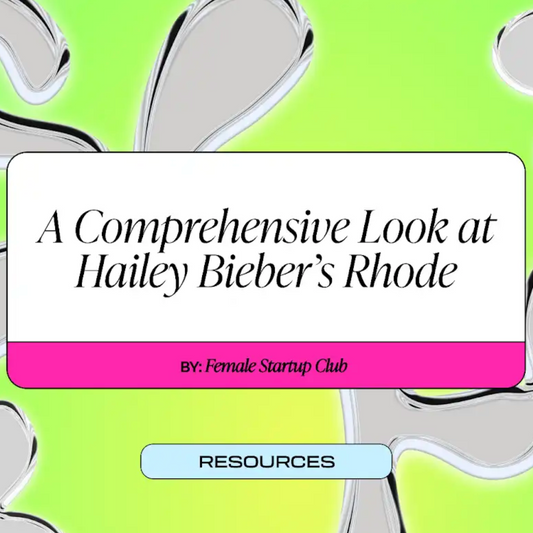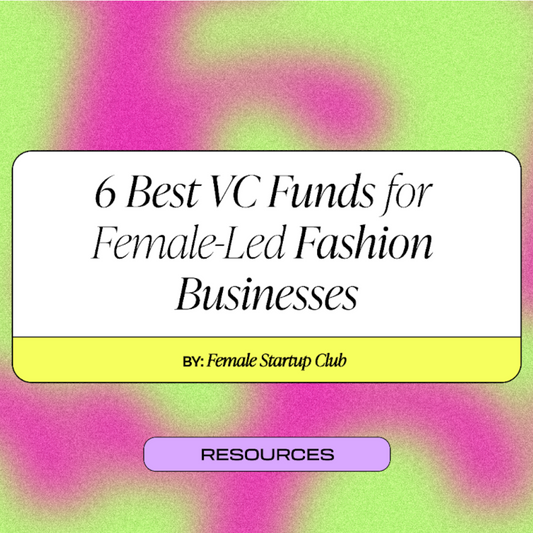Joining me on today’s show is Polly Rodriguez, the founder behind the sexual wellness company Unbound.
Since its start, Unbound has gone from being a labor of love operating out of a tiny NYC apartment to a leader in changing how people explore and enjoy their sex lives. Their mission is to make sexual wellness products that are body safe, affordable and elevated in design.
Polly shares the harsh realities of building this business for the first few years and the kind of sacrifice and commitment that comes with launching a startup.
Her advice on marketing regulated products and what they’ve done to stand out, dealing with the bias that exists between men and women’s sexual health companies, and why it’s important to be weird.

Polly's initial steps into entrepreneurship were anything but conventional. Unlike many founders who often bond over ideas in school or co-working spaces, her story began in the challenging environment of dating startups. These workplaces can be incredibly divisive for women, as the focus often shifts to quantifying people rather than celebrating them. After enduring this atmosphere, Polly found herself seeking a new direction.
That’s when she connected with Sarah Jane, a fellow female entrepreneur who was also exploring ideas within the sexual wellness sphere. Sarah Jane was working on a subscription box called Unbound Box with her friends during their free time. Polly was instantly drawn to this venture, which tapped into a subject she felt passionate about. Together, they embarked on a journey to create a curated space for individuals to explore sexual wellness products—an area that desperately needed attention.
The early days were challenging. Polly and Sarah Jane operated on a shoestring budget, bootstrapping for over two years. There were moments when Polly questioned whether to shut it all down. After saving up a modest $5,000, she naively believed it would sustain her until Unbound generated enough revenue to pay her a salary. However, the reality of entrepreneurship quickly set in.
Reflecting on those years, Polly noted, “I felt like a failure every day.” She watched other companies in the consumer space launch with ease, their success stories splashed across glossy magazines while she was hustling at flea markets and pouring her heart into witty marketing emails to a tiny audience.
It’s easy to get discouraged, especially when comparing oneself to seemingly overnight successes like Warby Parker or Casper. But Polly discovered that behind those tales of triumph often lies a significant amount of funding and marketing power that most new entrepreneurs simply don’t have.
Eventually, through sheer persistence and a willingness to embrace the grind, Unbound began to gain traction. Polly started writing engaging, relatable emails that resonated with her audience, injecting humor and authenticity into her communications. She recognized that many women felt shy about discussing sexual wellness openly, and her approach created a sense of community and connection.
As Unbound grew, Polly and Sarah Jane realized they could do more than just sell curated products—they could create their own line of affordable, high-quality sexual wellness items. This pivot was driven by their experience interacting with customers and understanding the shortcomings of existing products in the market. Many vibrators were overpriced and poorly made, leading to frustration among buyers.
Polly became laser-focused on fundraising, knowing that they needed to demonstrate traction to attract investors. “You need at least a thousand subscribers before anyone is going to take a meeting with you,” a mentor had told her, which fueled her determination. So they set specific, tactical goals, aiming for consistent growth month over month.
Polly faced countless rejections—over 300, to be exact—before she finally secured funding. Each rejection was a hit to her confidence, but she pressed on, fueled by positive feedback from customers who cherished the brand and its mission. There were days she felt like giving up, drowning in credit card debt and uncertainty, but the support from her community kept her grounded.
Ultimately, Polly's relentless hustle and her commitment to authenticity paid off. With a clear vision, an engaging approach to marketing, and a focus on quality products, Unbound has emerged as a leading voice in the sexual wellness industry. The journey was long, filled with ups and downs, but Polly's story serves as a reminder that perseverance, creativity, and a passion for your mission can lead to profound impact and success.
Whether you’re an aspiring entrepreneur or someone simply curious about the sexual wellness space, Polly’s journey illustrates the power of authenticity and community in building a brand that resonates deeply with its audience. Unbound is more than a company; it’s a movement aimed at destigmatizing conversations around sexual wellness and empowering individuals to embrace their desires openly and confidently.



